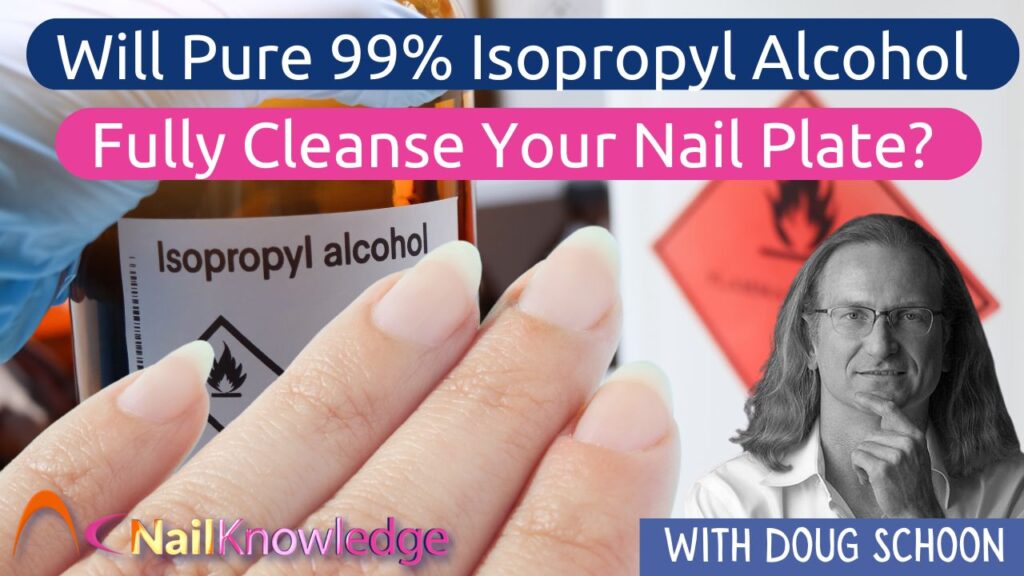We are asked this question a lot, and you are right to call them surface oils. The nail plate contains a lot of oil, but our focus is on removing the surface oils because they can block adhesion. Understanding the complexity of nail oils and the effectiveness of different solvents in removing these oils is crucial for achieving optimal results in nail care.
Let’s explore why using a professionally designed nail cleaner is more effective than relying on pure isopropyl alcohol alone.
The Complexity of Nail Plate Oils
The nail plate contains a lot of oil, but we only want to remove surface oils because they can block adhesion. We are making a simplification when we say the nail plate contains “oil”. Nail oil contains many different oily substances, and some are much more difficult to remove from the nail plate than others. The natural oils in the nail plate are a complex blend of more than a dozen different waxes and oily substances. Most of these substances are secreted by the tissue surrounding the nail plate, but some are transferred from the hair to the nails when they come into contact with each other. Not all oily substances found on the nail plate may be removed when the nail plate is cleaned with either acetone or alcohol or ethyl acetate, the most common solvents used.
Solvent Efficacy in Nail Cleansing
That’s because not all types of nail plate oily substances are soluble in every solvent. Some are more soluble in acetone, while others are more soluble in isopropyl alcohol. In other words, different solvents selectively remove various contaminants from the surface of the nail plate. Some solvents can leave behind contaminants that may fill up and/or block the various tiny spaces where the nail coating would normally seep into, harden and anchor itself more firmly to the surface of the nail plate. This helps explain why cleansing the nail plate is so important to good adhesion. A scientifically designed nail surface cleanser will contain a synergistic blend of solvents and other beneficial additive ingredients that are more likely to do a superior job when compared to using isopropyl alcohol alone. That’s why I recommend using professionally designed nail cleaners and avoiding less effective substitutes.


